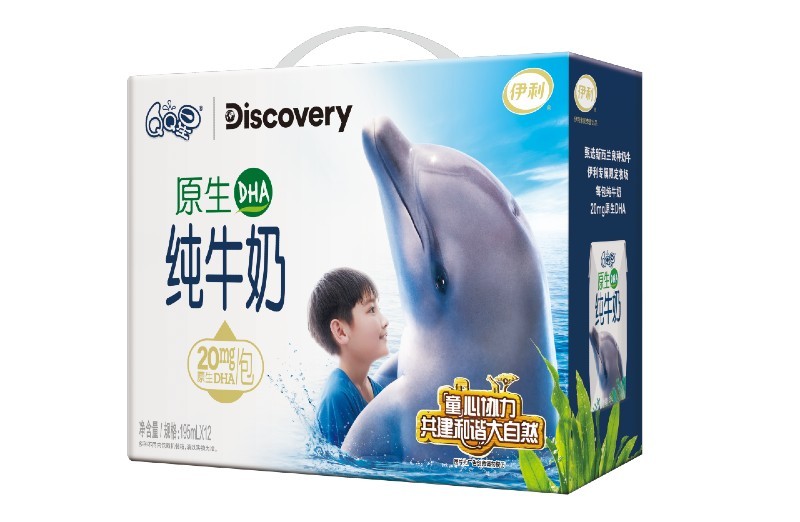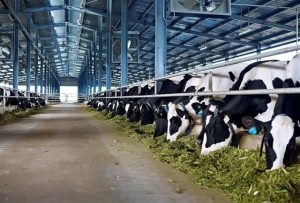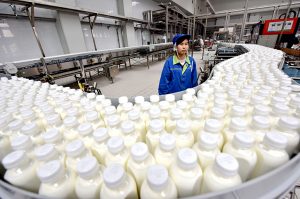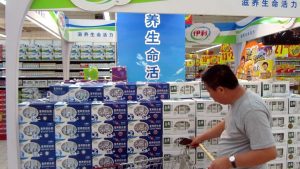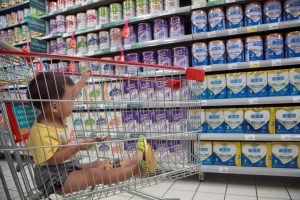
According to Yili, more and more consumers in China are turning to dairy products due to perceived nutritional and health benefits, a situation that has been accelerated by the onset of COVID-19.
“Affected by the COVID-19 epidemic, people are paying more attention to the intake of nutritious and health food, which has further stimulated people’s demands for dairy products, [which are] the most commonly selected health food that can effectively enhance nutrition and improve immunity,” Yili Innovation Centre Vice General Manager Dr Yun Zhanyou told FoodNavigator-Asia.
“Public data has revealed that 52% of local consumers have said that after the pandemic, they will pay more attention to their health, especially their immunity, and will buy related products, [such as dairy].
“[This was further boosted during COVID-19 by] many experts which promoted the increased intake of dairy, [as well as] a dietary guideline jointly published by four associations which recommended a daily intake of 300 ml equivalent of milk, which significantly raised awareness of dairy consumption and health.”
Milk itself is predicted to see some of the largest growth as a result of COVID-19 – market analysis firm GlobalData has revised its previous prediction of the Chinese milk sector value to hit around US$31bn by 2030, as opposed to earlier predictions of US$29bn.
“[The] COVID-19 pandemic has forced Chinese consumers to focus on their health. [That,] China’s heavy investments in modernizing its dairy industry for the past several years and [its] official promotion of milk consumption on the basis of its health benefits has prompted a surge in demand,” said GlobalData Consumer Analyst Ryan Whittaker.
“[Our research shows] a shocking 51% of respondents saying they were buying more white (regular) milk than before, and 34% who said they were buying the same as before [so] clearly, the milk category will do well during the pandemic.”
China’s post-COVID-19 preferred dairy products
Apart from regular milk, Chinese consumers are also showing a preference for dairy products that have immune-boosting properties or reduced-sugar content post-COVID-19, in line with the rising health trend.
“After COVID-19, consumers are tending to choose products with functions of boosting the immunity system [for health reasons] – The younger generation, the middle-aged and elderly consumers all have begun to pursue a healthy lifestyle and diet,” said Dr Yun.
“Probiotic-containing products also saw a boost in 2020, [likely partially because] in the diagnosis and treatment scheme for COVID-19 patients issued by the China National Health Commission (NHC), probiotics was suggested as an aid to treat patients.
“At the same time, we can also see the increasing demand for sugar reduction by young consumers, especially females.”
Technology boost
Dr Yun pegged another key factor for dairy growth in China as technology, applicable for both when it comes to innovation and consumer outreach.
“[In terms of innovation], consumer insight is key to product R&D for Yili – [we have a focus on healthy innovation and R&D], and in the first half of this year, we have already launched new products such as CUTE STAR naturally DHA rich milk, Satine fresh milk and Plant Selected high-protein sugar-free soybean milk,” he said.
“Yili has developed [our own] big data platform to comprehensively scan consumers’ online and offline purchase data, [as well as] provide data to support our R&D and new product launches.
“We have also set up a special R&D team to communicate with consumers online, to help them understand health knowledge such as dietary nutrition, and the benefits of milk drinking.”
As for consumer outreach, Dr Yun said that Yili is focusing on using technology to build e-channels that will improve consumer experience when buying their products.
“E-commerce sales have been accelerating quicker than ever after COVID-19, [and] Yili has responded by making many attempts in constructing our E-channels,” he said.
“So far we have and [initiatives such as] social marketing, O2O (online-to-offline) home services, unmanned convenience stores and more, which we [have] received good market feedback on.”
Yili was named the world’s most valuable dairy brand and second-most valuable food brand by brand value agency Brand Finance; as well as the most selected brand in China by the Kantar Consumer Panel in its Asia Brand Footprint Report 2020 earlier this year.
